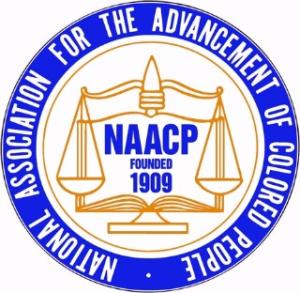Drug War Issues
Politics & Advocacy
All three marijuana legalization initiatives on state ballots this year have won the endorsement of National Association for the Advancement of Colored People (NAACP) regional organizations this week. Last Wednesday, the Colorado, Montana, and Wyoming conference of the NAACP endorsed the Colorado initiative, and last Friday, the Alaska, Washington, and Oregon conference of the NAACP endorsed the Washington initiative. That same conference endorsed the Oregon initiative earlier this month.

"In ending the prohibition against adult use of marijuana, we might affect mass incarceration and its disproportionate impact on African-Americans and other people of color," said Rocky Mountain states regional NAACP president Rosemary Harris-Lytle.
"Treating marijuana use as a crime has not only failed, it has perpetuated racial inequities through unequal enforcement," said Pacific Northwest regional president Oscar Eason, Jr. "African Americans are no more likely than whites to use marijuana, but we are much more likely to be arrested for it."
Every endorsement counts in what will be a nail-biter of a campaign in both states. According to recent polls, the Colorado and Washington initiatives are leading, but are only hovering around the 50% support level. It takes 50% plus one to win, and veteran initiative watchers say initiatives should be polling at least 60% as the campaigns head into the home stretch because some support is soft and likely to be peeled off by last minute opposition campaigning.
In Colorado, an early August Public Policy Polling survey of likely voters had Amendment 64 leading 49% to 40% and trending upward from an earlier PPP poll that had it leading 46% to 42%, but still not over 50%. In Washington, a July Public Policy Polling survey had I-502 leading 50% to 37% and trending upward over an earlier PPP poll that had it leading 47% to 39%, but still not over 50%. The battle looks to be a little tougher in Oregon, where a July Public Policy Polling survey asking a generic question about whether marijuana should be legalized had 43% saying yes and 46% saying no.
Look for in-depth reporting on these three marijuana legalization initiatives and their prospects after the Labor Day holiday.
This work by StoptheDrugWar.org is licensed under Creative Commons Attribution-ShareAlike 4.0 International
Comments
Make your voice heard
Take the time to submit questions to CNN, ABC and PBS regarding how the Presidential candidates would reaction if any the marijuana initiatives passed in CO, WA and OR. This is an opportunity to put the legalization issue on the international stage and certainly force the candidates who have avoided addressing this issue to get their opinion on the record.
NAACP Endorsement is NOT a Good Thing
The NAACP is not a civil rights organization. It's a business and a corrupt one at that. The statement that all races use marijuana but coloreds are more likely to be arrested for it is misleading . Coloreds commit more crime in general and put themselves in contact more often with law enforcement. Arresting coloreds for breaking the law is not racist. If a movement wants legitimacy it needs to avoid the NAACP.
Half agreed. I am aware of
Add new comment